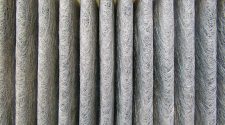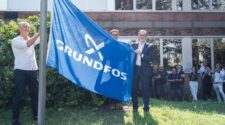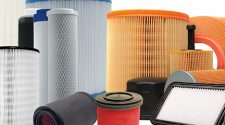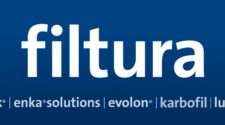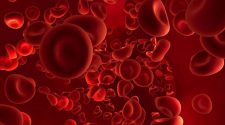In the dynamic and global filtration industry, news and information is breaking on a daily basis. International Filtration News is tracking stories relevant to our industry from air and gas filtration to liquid filtration and the various end-uses for filtration technology. Here we will post news stories relevant to filtration and its downstream applications on an ongoing basis. Please check back for regular updates. If you have news that you feel should be added to this summary report, please email it to Matt Migliore at mmigliore@inda.media.
Most recent update: August 30, 2021
NX Filtration extends executive team, hires Chief Commercial Officer
NX Filtration announced the appointment of Alejandro Roman Fernandez as Chief Commercial Officer (CCO). Fernandez will be responsible for managing and expanding NX Filtration’s global sales force and network of distributors and Original Equipment Manufacturer (OEM) partners. He is set to start in September 2021 and will be based out of NX Filtration’s headquarters in Enschede, Netherlands.
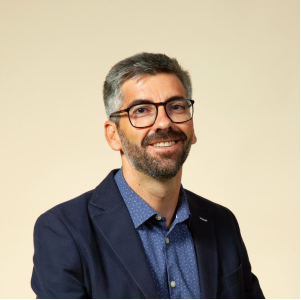
“We are very pleased to welcome Alejandro to our team,” said Michael Staatsen, CEO of NX Filtration. “With his extensive experience in the global water markets, he will drive the further roll-out of our global commercialization strategy. We experience an increasing focus on water challenges around the world, amongst others related to droughts and contaminations with micropollutants. Our direct nanofiltration membrane technology is uniquely positioned to address these challenges, whilst offering strong sustainability benefits for our customers.”
In his last role as vice president and global commercial head at Organica Water, Fernandez was responsible for all sales activities globally, managing the regional sales teams and expanding the global partner network. Prior to that, Fernandez held various roles at Pentair, Xylem and Thames Water. He holds a degree in Chemical Engineering from the University of Cadiz and a degree in Environmental Science from Kingston University in London.
Source: nxfiltration.com
NX Filtration wins Frost & Sullivan Global New Product Innovation Award
NX Filtration won the 2021 Frost & Sullivan Global New Product Innovation Award in the water and wastewater treatment membrane industry. NX Filtration was recognized for its direct nanofiltration membranes that remove micropollutants, including pharmaceuticals, medicines, PFAS and insecticides, color, selective salts, bacteria, viruses and nanoplastics from water in one step.
Frost and Sullivan’s Global New Product Innovation Award recognizes the company that offers a new product or solution that addresses key customer challenges. Frost & Sullivan’s analysts research markets and companies on criteria related to new product attributes (match to needs, reliability, quality, positioning and design) and customer impact (price/performance value, customer purchase experience, customer ownership experience, customer service experience and brand equity).
“Climate change today leads to increasing water scarcity and water contamination,” Paul Hudson, industry analyst at Frost & Sullivan, said. “Frost & Sullivan recognizes NX Filtration’s direct nanofiltration membranes’ ability to address such challenges. The company displays highly effective and resilient properties that allow users to achieve high selectivity at nanoscale. By utilizing NX Filtration’s membrane solutions, companies can achieve higher efficiency in a sustainable process unmatched by the competition. With its unrivaled expertise, high-performance membrane solutions, and customer-centric approach, NX Filtration earns the 2021 Frost & Sullivan Global New Product Innovation Award.”
Source: nxfiltration.com
Beckmann Converting launches new website
Beckmann Converting, Inc, a laminator of textile composites specializing in ultrasonic bonding lamination, announced its newly redesigned website is now live at beckmannconverting.com.
“We believe that our new website, with leaner presentation and more effective navigation flows, will become an important resource for current and prospective customers,” said Ray Piascik, director of sales and marketing at Beckmann Converting. “Innovative modules including the ‘Buyer’s Journey’ and the ‘Virtual Swatchbook’ were created to give visitors direct access to critical information.”
A laminating program at Beckmann Converting could be driven by any one of three distinct groups of people in a customer’s organization, explained Piascik. The Buyer’s Journey provides three specially curated paths through the website – one for New Product Leaders, one for Manufacturing Capacity Leaders, and one for Supply Chain Leaders.
The Virtual Swatchbook provides descriptions and images of the roll patterns for ultrasonic laminating available at Beckmann Converting. Each roll pattern, with different shapes and spacing of weldpoints and bonded area as a percentage of total web area, has a downloadable and printable specification sheet accessible through the Swatchbook. A supplemental hard copy of textile samples showing the bond patterns can be requested from the company for use in conjunction with the online tool.
View the new site at: beckmannconverting.com (NOTE: If you’ve visited the site before, you may need to delete your web browser cache to load the new site.)
NX Filtration supplies hollow fiber nanofiltration membranes for potable water production at Indonesian hospital
NX Filtration was selected by PT. Bayu, an Indonesian specialist in constructing water and wastewater treatment plants, to supply its hollow fiber nanofiltration membranes for potable water production for Rumah Sakit Cipto Mangunkusomo, Indonesia’s biggest state owned hospital in Jakarta.
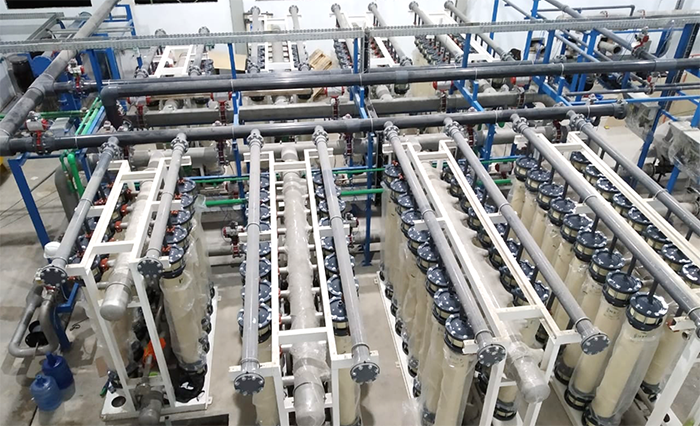
The nanofiltration system will supply the Rumah Sakit Cipto Mangunkusomo hospital with clean potable water with a capacity of 4,000 liters per hour based on NX Filtration’s dNF40 membrane modules. This is NX Filtration’s second project for PT. Bayu, as NX Filtration supplied its dNF80 membrane modules earlier this year for the production of drinking water for the city of Dumai based on local river water.
Source: nxfiltration.com
Cornell taps its grad students to devise and implement air filtration solution for campus buses
The Cornell Campus-to-Campus (C2C) buses have resumed service thanks to a new air filtration system that was designed, built and installed by a team of faculty and staff, and at the center of the collaboration, a master’s student who decided to do something challenging with his summer break.
“It seemed like an interesting problem,” said Christopher Kartawira ’21, a student in the Master of Engineering Program in the Sibley School of Mechanical and Aerospace Engineering. “And it became very hands-on, which gave me insight into how, in the real world, it might be nice to really get the nitty-gritty details of what the airflow looks like, what the viral concentration in the bus looks like. But at the end of the day, they needed something done, and they needed something that works.”
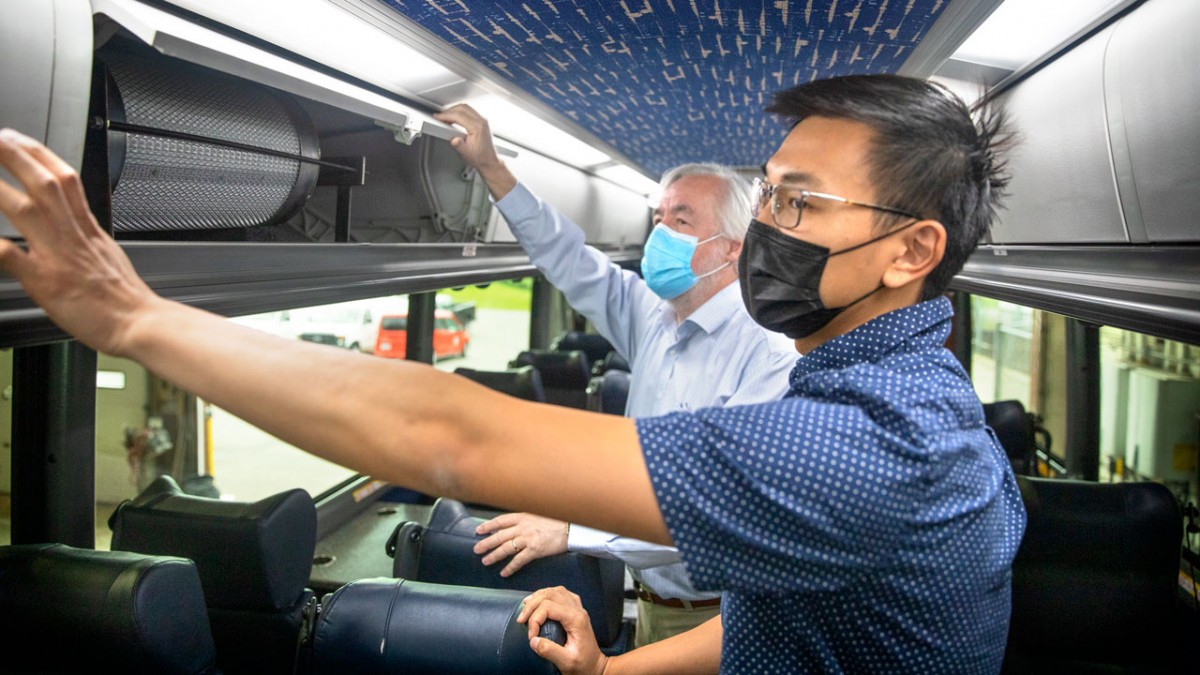
C2C service was suspended March 25, 2020 due to the pandemic. While facilities improvements and safety protocols helped campus operations resume relatively quickly, the buses – which connect Cornell’s campuses in Ithaca and New York City – remained garaged.
“The idea came up that perhaps we had enough knowledge across the campus to figure out how to get the Campus-to-Campus buses running,” said Mark Hurwitz, chief research compliance officer and leader of the Research Division’s multidisciplinary Biomedical Equipment and Testing Rapid Response committee, which was brainstorming ways to address the pandemic’s technological challenges.
The heating, ventilation and air conditioning (HVAC) systems typically used on buses can filter out large dirt particles, as well as any leaves and rocks that enter the intake valves, but the filters are not fine-grained enough to snare viral particles. Also, the size and layout of buses means there is only so much room available for filtering equipment.
To tackle the engineering challenge, Hurwitz’s group expanded to include several faculty and staff members with expertise in key areas, such as Peter Frazier, the Eleanor and Howard Morgan Professor of Operations Research and Information Engineering, whose epidemiological modeling team helped Cornell safely reopen and navigate the pandemic; Al George, the John F. Carr Professor of Mechanical Engineering Emeritus; Bill Leonard, department of transportation specialist with Cornell Environmental Health and Safety; and Olivier Desjardins, professor of mechanical and aerospace engineering, a world expert in modeling particle motion in turbulent flows.
Frazier’s group calculated the potential transmission of the virus, while Desjardins and his students built a computational system to show how the air flow and viral particles would behave in buses. Hurwitz himself already had deep knowledge of filtration technology, having spent 35 years in research and development at the Pall Corporation, a global supplier of filtration, separation and purification products.
Together, the researchers determined that a system with the appropriate filters in place and proper airflow on the bus could reduce, to no more than 10-15%, the average concentration of what would be emitted by any passenger through their mask, which would still be required to be worn. In addition, each passenger would have a supply of clean air from the nozzle directly above them in the package rack, effectively minimizing any risk of viral transmission.
Once the research team and the transportation department saw that a solution was possible, they set a goal to have the revamped buses running by early August. All they needed now was someone who had the time and skills to put everything together within two months. So they tapped one of the university’s greatest resources: its graduate students.
Read the full story: https://news.cornell.edu/stories/2021/08/grad-student-breath-fresh-air-c2c-filtration-project
Source: https://www.cornell.edu/
Elon Musk’s water filtration stations ready for testing at Flint schools
The water filtration systems funded by Elon Musk are ready for final testing at Flint Schools, according to Kettering University officials, according to a report by flint beat.
It has been almost three years since Musk donated $480,000 in Oct. 2018 to cover the cost of installing ultraviolet water stations in all Flint school buildings and the administration building.
Laura Sullivan, a mechanical engineering professor at Kettering, provided an update on the project during an Aug. 18 Board of Education meeting.
Next steps involve connecting the stations to the district’s plumbing and testing three water samples from each. Arch Environmental Group is slated to perform the tests.
The group will sample the water as it enters the school building, as it enters the fountain, and as it exits the faucet, Sullivan said.
“There is lead in some of the plumbing within the schools, as well as galvanized iron (which adsorbed lead from the water). In addition, in some buildings the chlorine level isn’t always sufficient to completely disinfect the water,” Sullivan said.
Kettering University has been working on a volunteer basis with the district to test and perfect the systems prior to use by children.
Read the full story: https://flintbeat.com/elon-musks-water-filtration-stations-ready-for-testing-at-flint-schools/
Source: flintbeat.com
Superior Felt & Filtration opens Charlotte office; hires Ping Hao to lead Technical Nonwovens business
Superior Felt and Filtration LLC has opened a new office in Charlotte, North Carolina, in the heart of the North American nonwovens industry. The new location is designed to enable Superior to better utilize industrial resources and serve its customers, aligning with the company’s business expansion and long-term growth strategy.
In tandem with the opening of Superior’s Charlotte office, the company announced its hiring of Ping Hao as Technical Nonwoven product manager. Hao has over 25 years of experience in Nonwoven and textile industries, including nanotechnology, spunmelt, spunlace, thermal bond, needle punching, thru-air bond, lamination, and mechanical and chemical finishing. She also has background in structural composites that cover applications such as air and liquid filtration, medical, hygiene, industrial, automotive, wipe, home furnishing, packaging, and many consumer product applications. Hao holds eight patents and many publications.
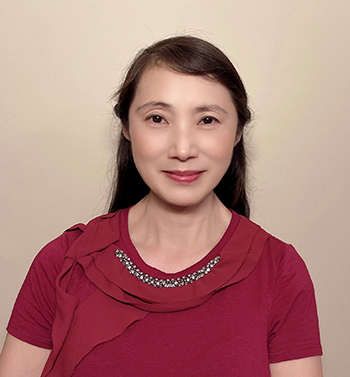
Technical Nonwoven Product Manager
Superior Felt & Filtration
Hao will be working with customers, regional sales, suppliers and converters to create products to gain technical competitiveness and market advantages, explore different applications and generate new sales revenues for the company. She will also be working with Mark Rath, Filtration product manager to find new avenues for the T-Stat and MB product lines, as well as Superior’s partner Hollingsworth & Vose in the launch of the TruPor product line for high-purity liquid filtration applications.
Source: superiorfelt.com
NX Filtration to supply direct nanofiltration membranes for Jetpur wastewater treatment plant in India
Aquarius H2O Dynamics has selected NX Filtration to supply its hollow fiber direct nanofiltration (dNF) membranes for wastewater treatment at the common effluent treatment plant (CEPT) in Jetpur in the Gujarat province of India. This is NX Filtrations’s second project for Aquarius H2O Dynamics this year.
“Earlier this year we piloted with NX filtration’s unique hollow fiber nanofiltration membranes for various applications and already integrated their membranes for the industrial reuse of wastewater at the KKCL denim jeans company,” said Sandip Patel, Managing Director of Aquarius H2O Dynamics. “This new application, for the municipal recovery of caustic, marks an important step for the future of wastewater treatment in India.”
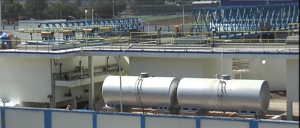
The system, based on 102 dNF40 membrane modules of NX Filtration, will be used for the recovery of caustic from the water intensive textile industries at Jetpur. Caustic is used for the purification of cellulosic fibers, removing hemicellulose and other impurities from the fiber, and for higher quality dyeing and printing operations.
“We are proud of this further development of our relationship with Aquarius H2O Dynamics,” said Manish Ghogle, Sales Manager of NX Filtration in India. “Our innovative hollow fiber direct nanofiltration membranes enable this simple and sustainable process of reusing wastewater. Compared to traditional wastewater treatment methods, we reduce the number of filtration steps, avoid the use of chemicals in the pre-treatment of the wastewater and significantly reduce energy use.”
The new membrane filtration system will enable CETP Jetpur to recover caustic from its wastewater streams for reuse in the textile industry, reducing spending on caustic and the treatment cost of caustic wastewater.
Source: nxfiltration.com
NSF invests in engineering research to remove PFAS from the environment
The U.S. National Science Foundation has funded nine fundamental research projects to create new strategies to remediate PFAS in the environment. PFAS, or per- and polyfluoroalkyl substances, persist and accumulate in soil, water and living organisms, and they can lead to adverse health effects.
“NSF has long supported research on the prevention, mitigation and remediation of environmental pollution to protect the health of people and the planet,” said Richard Dickinson, division director of the NSF Division of Chemical, Bioengineering, Environmental and Transport Systems. “With these new studies, NSF hopes to enable effective, feasible and sustainable technologies to remedy PFAS contamination across the nation.”
With more than $4.1 million in combined funding, the new research projects will use a variety of approaches to treat PFAS contamination, whether by capturing the chemicals or by breaking their carbon-fluorine bonds to turn PFAS into benign products. Researchers will investigate biological technologies, chemical catalysis technologies, photolytic technologies and physical treatment technologies.
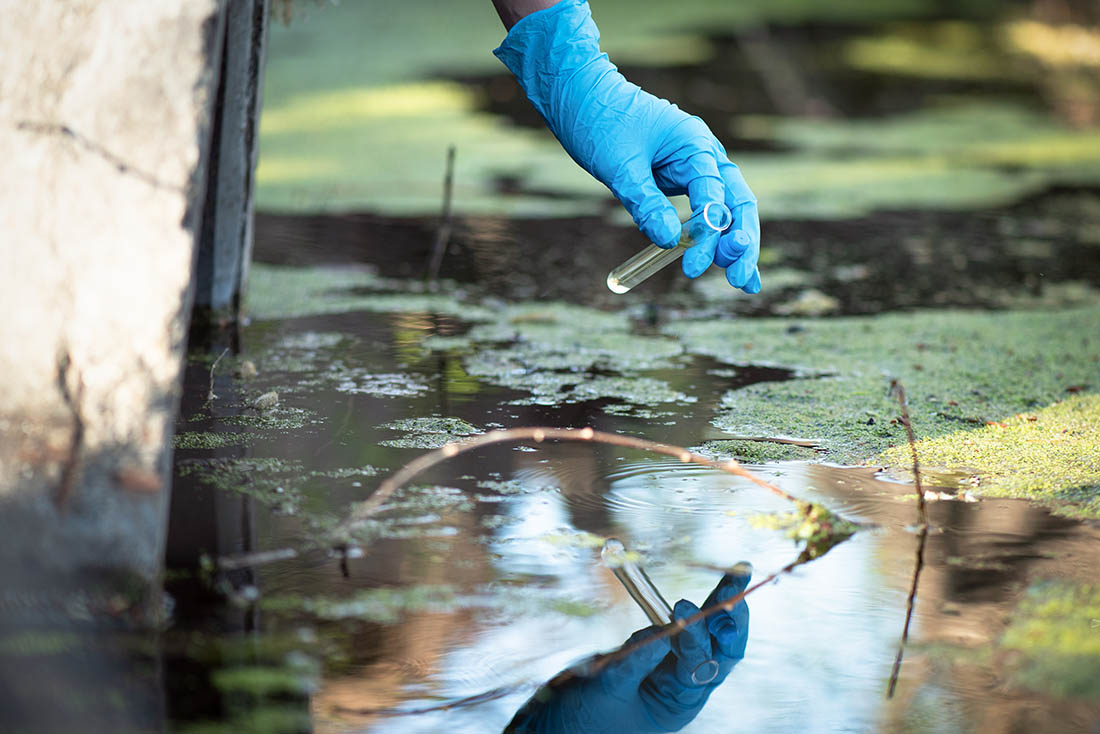
The nine projects for engineering research to advance solutions for environmental PFAS are funded through 13 awards:
- A “concentrate-and-destroy” technology for treating per- and polyfluoroalkyl substances using a new class of adsorptive photocatalysts: Auburn University, award 2041060; and University of Maryland, Baltimore County, award 2041059
- Development of quantitative tools to assess the mechanisms and full potential of UV-ARPs for the treatment of PFASs in water: Texas A&M University, award 2050934; and California State University, Long Beach, award 2050882
- Electrocatalytic hydrodefluorination of PFAS using molecular, metal-free catalysts: University of Cincinnati, award 2051260
- Mechanistic investigation of thermal decomposition of poly- and perfluoroalkyl substances in the soil environment: University of North Dakota, award 2047062
- Microbial electrochemical defluorination of PFAS using bioaugmented Acidmicrobium sp. Strain A6: Princeton University, award 2055015
- Nickel and palladium single-atom electrocatalysts for selective capture and destruction of PFAS in complex water matrices: Yale University, award 2120418; and Clarkson University, award 2120452
- Remediation of per- and polyfluoroalkyl substances in wastewater using anaerobic membrane bioreactors: SUNY at Buffalo, award 2112201; and University of Southern California, award 2112651
- Tunable vacuum-ultraviolet irradiation systems with highly polarized redox environment for treatment of per- and polyfluoroalkyl substances: University of California, Riverside, award 2131745
- Understanding the surface-active properties of PFAS for enhanced removal by bubbling-assisted water treatment processes: SUNY at Stony Brook, award 2052772
Source: nsf.gov
Stefan Tolle takes over as president of Mann+Hummel’s Automotive Aftermarket business
As of now, Stefan Tolle assumes the role of President and General Manager Automotive Aftermarket at Mann+Hummel. The 57-year-old follows Kurk Wilks, President and CEO of the MANN+HUMMEL Group, who held this position on an interim basis. Wilks: “We are delighted to have Stefan Tolle, an experienced manager and proven expert in the automotive aftermarket, in our ranks. I am convinced that he is the right person to further strengthen our aftermarket business and make it fit for the future.” Tolle worked for Bosch for more than three decades in various functions, including many years in the automotive aftermarket sector. Most recently, he was CEO of Syntegon Cartoning – Track & Trace GmbH, a spin-off of Bosch Packaging Technology.
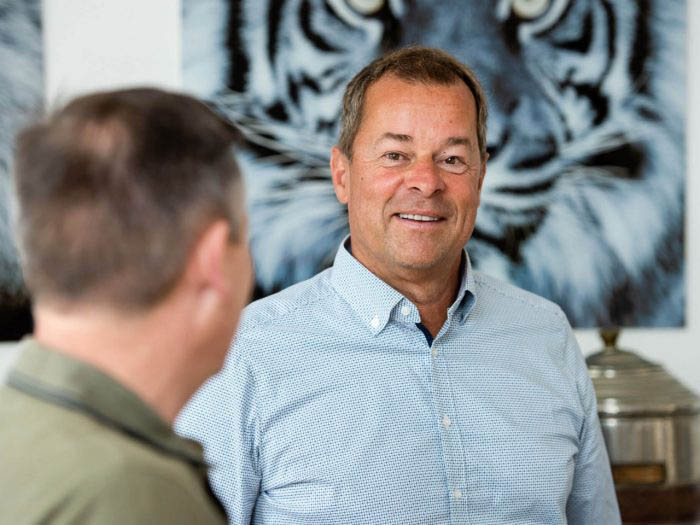
Source: mann-hummel.com
Eaton reports record earnings for Q2 2021
Power management company Eaton Corporation plc announced that earnings per share were $1.26 for the second quarter of 2021. Excluding charges of $0.25 per share related to intangible amortization, $0.18 per share related to acquisitions and divestitures, and $0.03 per share related to a multi-year restructuring program, adjusted earnings per share were a second quarter record of $1.72, up 98% over the second quarter of 2020, and up 19% over the first quarter of 2021.
Sales in the second quarter of 2021 were $5.2 billion, up 35% from the second quarter of 2020. The sales increase consisted of 27% growth in organic sales, 5% growth from acquisitions, and 3% from positive currency translation.
Craig Arnold, Eaton chairman and chief executive officer, said, “Building on the momentum from the first quarter, we achieved strong performance in the second quarter. We delivered record second quarter adjusted earnings per share and segment margins, and organic sales were slightly above the midpoint of our guidance range despite supply chain constraints impacting many of our businesses. We are pleased with how well our businesses are executing in this environment.”
During the quarter, Eaton closed the acquisition of Cobham Mission Systems, and the acquisition of a 50% stake in Jiangsu YiNeng Electric’s busway business in China, adding new products and growth opportunities for the Aerospace and Electrical global segments. The sale of Eaton’s Hydraulics business to Danfoss closed on August 2.
Source: eaton.com
Cummins reports strong Q2 2021 results; says it is considering ‘strategic alternatives’ for Filtration business
Cummins Inc. reported results for the second quarter of 2021, with revenues of $6.1 billion increasing 59% from the same quarter in 2020. Sales in North America increased 74% while international revenues increased 42% driven by strong demand across all global markets compared to the same quarter in 2020, which was impacted significantly by the pandemic. Currency positively impacted sales by 3% primarily due to a weaker U.S. dollar.
“Strong demand across many of our key markets drove continued sales growth in the second quarter, particularly in North America, and resulted in solid profitability,” said chairman and CEO, Tom Linebarger. “The strength of the order board reflects robust underlying demand in many of our markets, which is remarkable considering the challenges and uncertainty we faced during this same period last year. I cannot thank our employees and the employees of our supply base enough for their unwavering contributions during these challenging times given the significant supply chain constraints we continue to experience in our industry.”
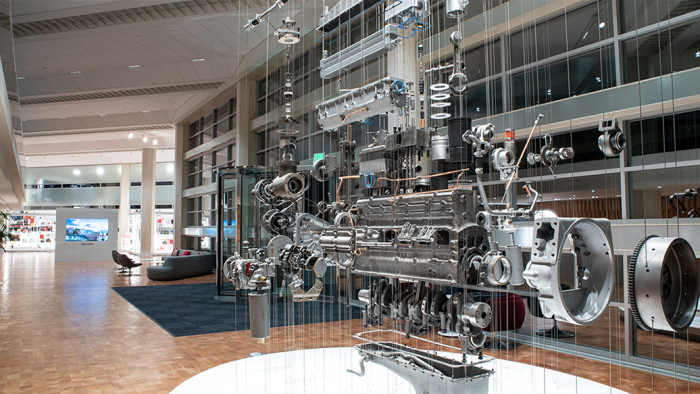
Earnings before interest, taxes, depreciation and amortization (EBITDA) in the second quarter were $974 million (15.9% of sales), compared to $549 million (14.3% of sales) a year ago.
Net income attributable to Cummins in the second quarter was $600 million ($4.10 per diluted share) compared to $276 million ($1.86 per diluted share) in 2020.
Cummins also announced its exploration of strategic alternatives for its Filtration business unit. Potential strategic alternatives to be explored include the separation of the business into a stand-alone company.
Cummins Filtration, founded by Cummins in 1958, is a recognized leader in the filtration space, with a strong technological base of expertise and patents. Cummins Filtration has grown consistently, and as an independent company, would have the opportunity to accelerate growth as it further diversifies into new products and end markets, according to Cummins. Cummins Filtration offers products for use in on-highway, heavy, medium, and light-duty trucks, off -highway industrial equipment, and power generation systems. The business benefits from a large installed base with comprehensive aftermarket coverage driving recurring revenue and cash flow visibility; and has a leading global footprint across many key regions, including North America, India, and China. In 2020, the business had sales of approximately $1.2 billion.
Source: cummins.com
LG Sonic provides ultrasonic technology to combat algal blooms in Lake St. Charles, Florida
LG Sonic partnered with Lake St. Charles Community Development District (CDD) and the Florida Department of Environmental Protection (FDEP) to facilitate an algae bloom mitigation project on Lake St. Charles.
The project began on July 1st, 2021, and will end on October 1st, 2022.
Lake St. Charles is a valued feature of the community and a hypereutrophic headwater for the Archie Creek watersheds, connecting to Tampa Bay.
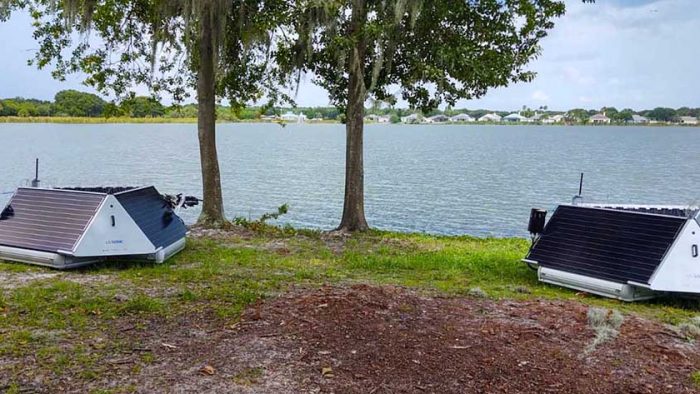
The new project involves the installation of eco-friendly ultrasonic technologies that do not harm the environment unlike traditional algae treatments, which can lead to copper build-up in the sediment and result in a lack of beneficial bacteria in the water.
This new approach is therefore designed to work in harmony with the ecosystem and local community.
Harmful algae blooms (HABs) are a growing environmental concern, affecting all parts of the world. Excessive nutrient pollution entering water bodies, especially phosphorus and nitrogen, fuels the proliferation of HABs.
These blooms can cause serious illnesses in humans, animals, and fish, degrade water quality, and result in foul taste and smell.
Two ultrasonic devices (MPC-Buoys) manufactured by LG Sonic were deployed earlier in July. These devices combine real-time water quality monitoring, a web-based software, and ultrasound to combat algae blooms.
The MPC-Buoys emit low-power ultrasound into the water, creating a sound wave in the top water layer, impacting algae’s buoyancy. The algae then sink to the deeper layers of the water column, where they can’t access sunlight anymore. They decompose over time without releasing toxins into the water. This technology is safe for humans, fish, and plants.
Source: lgsonic.com
FLSmidth reports Q2 results
Highlights in Q2 2021
- Order intake increased 42% organically y-o-y
- Revenue increased 9% organically y-o-y
- EBITA increased 50% y-o-y
- EBITA margin increased to 4.8% from 3.4% in Q2 2020
- Net working capital ratio improved to 8.2% – best level in many years
- Positive cash flow and reduction in net debt
Order intake increased 42% organically compared to Q2 2020. Including currency effects and acquisitions, order intake increased by 38% y-o-y to DKK 4,615m.
FLSmidth Group CEO, Thomas Schulz, said, “Our second quarter showed positive progress across the board: A strong order intake, including the award of Europe’s first full-scale clay calcination installation which will cut plant CO2 emissions by up to 16%. Higher revenue from both service and capital businesses and 50% higher EBITA compared to Q2 2020. Further reduction in net working capital and a strong free cash flow. Overall, a good performance by our organization.”
Revenue increased 6% to DKK 4,073m in Q2 2021 (Q2 2020: DKK 3,846m) and 9% organically, comprising a 13% increase in Mining and a flat development in Cement.
Gross margin improved 1.3%-points compared to Q2 2020, positively impacted by implemented business improvement activities. The Group EBITA margin increased to 4.8% from 3.4% in Q2 2020.
Acquisition of thyssenkrupp’s Mining business
On 29 July, we announced the acquisition of thyssenkrupp’s Mining business. Closing of the transaction is expected in H2 2022 and is subject to customary approvals from relevant authorities.
Thomas Schulz commented: “This is a transformational deal and at at the right time with the mining growth cycle already underway. We are creating one of the world’s largest and strongest suppliers to the mining industry, and at the same time it is a significant milestone in our MissionZero sustainability ambitions. The transaction offers an attractive opportunity to create long-term value for our shareholders, a stronger value proposition for our customers and improved career pathways for the combined pool of talented employees.”
The Mining business revenue is expected to grow in 2021 with modest growth in the second half of the year. EBITA margin for Mining is expected to be high-single digit for the full year. The Cement business revenue is expected to remain soft in the second half of 2021 and decline for the full year. Initiatives to reshape the Cement business are progressing well. The Cement business is not expected to be EBITA positive in 2021 due to continued Cement reshaping costs and low capacity utilization in the service business, particularly related to the impact of the pandemic in H1.
Source: flsmidth.com
DuPont selected to provide membranes for largest desalination plant in Israel
DuPont announced that its FilmTec membranes have been selected by IDE Water Technologies to provide the sea water reverse osmosis (SWRO) filtration for the Sorek B desalination plant in Israel.
The 25-year, 200 million m3/year facility, which will be the largest desalination plant in Israel and one of the largest in the world, is predicted to set a new benchmark for seawater desalination water prices on a global scale. IDE Water Technologies designed the state-of-the-art plant to drive efficiency, environmental sustainability, and achieve a low water price.
DuPont is providing SWRO membrane elements to the project site, including dry SWRO elements. As dry membranes do not require preservation solution, they enable longer storage times, lower labor costs, and easier, long-term warehouse planning. The dry membranes are also more sustainable, using less water and chemicals in production and significantly reducing the carbon footprint of shipping.
“As our industry works to solve global water challenges, solutions that address sustainability and affordability will have the biggest impact,” said HP Nanda, global vice president and general manager, DuPont Water Solutions. “We are proud to continue our work with IDE Water Technologies to bring affordable seawater desalination to Israel and tackle water shortages in one of the driest parts of the world.”
“We’re convinced that the new standard we’ve set will help propel the water treatment world forward, and encourage the construction of additional high efficiency, environmentally sustainable and low-cost desalination facilities worldwide,” said Avshalom Felber, Executive Chairman, IDE Technologies.
The largest of its kind reverse osmosis plant will be built in Sorek central Israel, and will increase Israel’s desalination capacity by 35 percent. The Sorek B plant is expected to come online in 2023, with an annual production capacity of 200 million cubic meters. It will be the sixth desalination plant Israel has built along its Mediterranean coast as the country braces for the risk of climate change and regional conflicts, aggravating water shortages.
Source: dupont.com/water.html
H&V, Superior Felt & Filtration partner to expand the distribution of Trupor microfiltration media
Hollingsworth & Vose Company (H&V) is partnering with Superior Felt & Filtration, LLC to offer H&V’s Trupor membrane media to global markets.
Trupor is a 100% Nylon 0.45 and 0.65 microfiltration media that meets and exceeds the performance of microporous cast membranes. Trupor’s pore size uniformity enables improved flow rates and faster, more predictive data modeling of filtration performance.
Trupor is H&V’s latest offering in sub-micron filtration. It is suited for applications in biological fluids, process water, biopharmaceutical, electronics, clarification, fermentation, semiconductor, food and beverage, potable water, solvent clarification, API chemical and reagent grade chemical applications. Trupor complies with US FDA (21CFR), NSF / ANSI 61, USP Class VI.
“Microfiltration is an important area of process liquids, and H&V is excited about having a product available for an area with so much potential and growth,” said Fred Lybrand, global marketing director of Process Liquids for H&V. “Superior’s support of the Technostat product family has been very successful and they are an important partner for H&V.”
Superior Felt & Filtration is a global distributor and converter of Trupor’s Nylon grades. Based in McHenry, Illinois, Superior offers inventory of Trupor and value-added converting including, collating, slitting, pleating and die cutting.
Source: trupor.com & superiorfelt.com
A. O. Smith reports record Q2 sales and earnings, raises outlook
Second quarter 2021 highlights
- Total sales of $859.8 million, an increase of 30% compared with Q2 2020
- Net earnings of $118.2 million, an increase of 74% compared with Q2 2020
- Record second quarter EPS of $0.73, an increase of 74% compared with Q2 2020
2021 guidance
- Sales growth between 17-18%, upgraded from midpoint of 14.5 % announced in April
- EPS between $2.70 to $2.76, upgraded 5% from the midpoint announced in April
“Our global A. O. Smith team delivered record second quarter earnings per share on a 30 percent increase in sales compared with the second quarter of 2020, which was negatively impacted by the pandemic. Our teams demonstrated solid execution and operational agility despite supply chain and logistics challenges along with rapidly-rising material costs,” said Kevin J. Wheeler, chairman and chief executive officer. “Our employees excelled in finding creative and collaborative solutions to keep our customers supplied with the water heating and water treatment products they needed to meet demand.”
Sales in the North America segment of $603.6 million increased 26 percent compared with the second quarter of 2020 driven by higher volumes of water heaters, boilers and water treatment products and price increases implemented in response to rapidly rising material costs as well as increased transportation costs.
Rest of World segment sales of $263.2 million increased 39% from the second quarter of 2020, driven by local currency sales growth of 26 percent in China. Sales growth in each of the company’s major product categories in China contributed to higher sales. Currency translation of China sales favorably impacted sales by approximately $20 million.
In related news
A. O. Smith Corporation acquired Master Water Conditioning Corporation, a Pennsylvania-based water treatment company in an all-cash transaction. Terms of the transaction were not disclosed. Master Water joins other A. O. Smith acquisitions, Aquasana (2016), Hague Quality Water (2017) and Water-Right Group (2019) in the company’s growing North America Water Treatment business.
“The acquisition of Master Water further demonstrates our commitment to the North American water treatment market, a key element of our strategy to deliver innovative, differentiated solutions that heat and treat water,” said Kevin J. Wheeler, president and chief executive officer.
The second-generation, family-owned company is based in Pottstown, Pennsylvania, and offers residential, commercial and light industrial products and systems to address a wide range of water issues. Master Water products include point-of-entry water softeners, filters and ultrafiltration systems, which are sold under the names Alliance, Clarifier, MasterFusion, Satin, PuroPro, UltraPro and Clear Reflections, among others. The company was founded in 1967.
Source: aosmith.com
MIT spinoff Via Separations aims for industrial decarbonization with its durable graphene oxide membranes
If you wanted to get pasta out of a pot of water, would you boil off the water, or use a strainer? While home cooks would choose the strainer, many industries continue to use energy-intensive thermal methods of separating out liquids. In some cases, that’s because it’s difficult to make a filtration system for chemical separation, which requires pores small enough to separate atoms.
In other cases, membranes exist to separate liquids, but they are made of fragile polymers, which can break down or gum up in industrial use.
Via Separations, a startup that emerged from MIT in 2017, has set out to address these challenges with a membrane that is cost-effective and robust. Made of graphene oxide (a “cousin” of pencil lead), the membrane can reduce the amount of energy used in industrial separations by 90 percent, according to Shreya Dave PhD ’16, company co-founder and CEO.
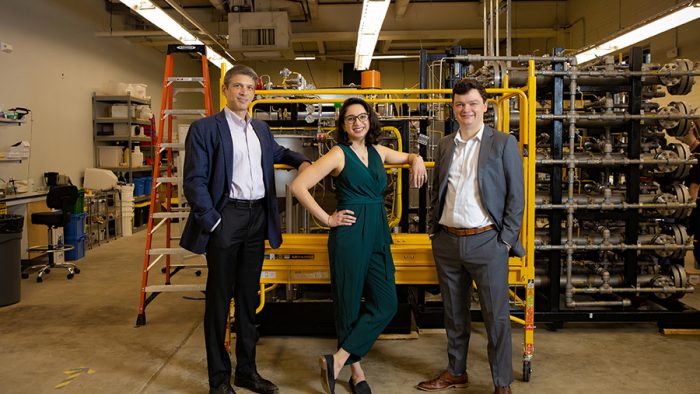
“The advantage of graphene oxide is that it’s very robust,” Dave says. “It’s got carbon double bonds that hold together in a lot of environments, including at different pH levels and temperatures that are typically unfriendly to materials.”
Such properties should also make the company’s membranes attractive to other industries that use membrane separation, Keller says, because today’s polymer membranes have drawbacks. “For most of the things we make — from plastics to paper and gasoline — those polymers will swell or react or degrade,” he says.
Graphene oxide is significantly more durable, and Via Separations can customize the pores in the material to suit each industry’s application. “That’s our secret sauce,” Dave says, “modulating pore size while retaining robustness to operate in challenging environments.”
Read the full story: https://news.mit.edu/2021/cleaning-industrial-filtration-via-separations-0803
Source: news.mit.edu
Fischer Process Industries acquires H.E. Danby
Fischer Process Industries has acquired H.E. Danby, bringing a wide selection of pumps, filters, and filtration systems from manufacturers like Gorman-Rupp, Aurora Pump, Eaton, GE Water Technologies, Filtertech, Gusher-Nagle, and AllFlo.
Fischer Process Industries is a distributor of pumps, valves, and process equipment servicing Ohio, Indiana, Kentucky, West Virginia, Georgia and Alabama in the United States. Fischer’s 30,000 sq. ft. headquarters is located in Loveland, Ohio, which serves as a central warehouse and service center. In addition, it has 10,000 sq. ft. locations in Alpharetta, Georgia and Owensboro, Kentucky.
Source: fischerprocess.com
Rensa Filtration acquires Custom Filter
Rensa Filtration, a family of filtration companies that manufacture air filtration products, acquired Illinois-based Custom Filter, Inc., a manufacturer of specialty HEPA and ULPA-level filtration products and offers extensive testing and validation programs with over 60 years of experience servicing OEM, contract manufacturing, niche, and a broad spectrum of high-end pleated filters.
Custom Filter manufacturers a variety of filters for air, liquid, and molecular OEM filtration applications. Offering complete in-house engineering services including filter design, prototyping, manufacturing and filter testing.
“Custom Filter is an exceptional filtration company that shares Rensa’s commitment to engineering excellence, continuous improvement and product innovation,” said Brandon Ost, CEO of Rensa Filtration. “Custom is a very well-run organization, and we are thrilled John and his team will remain intact with Rensa post acquisition.”
“Joining Rensa and Brandon is an excellent opportunity to expand our manufacturing capabilities and platforms,” said John Copley, President and CEO of Custom Filter. “Together we are excited about the exchange of ideas and anticipated synergies amongst the Rensa portfolio companies.”
Custom Filter is Rensa’s sixth acquisition since its inception in 2017. Other members of the Rensa family include Maryland-based Viskon-Aire, Illinois-based Permatron, Michigan- and Ohio-based RoboVent, Michigan-based D-Mark, Inc, and Texas-based Air Filters, Inc.
Source: rensafiltration.com
Ahlstrom-Munksjö, Via Separations to pilot system that aims to improve energy efficiency of pulp and paper process
The Ahlstrom-Munksjö Mosinee plant in Wisconsin is teaming up with Via Separations to pilot a Via Separations’ Black Liquor Concentration System that aims to drive energy efficiency improvements.
Black liquor is the byproduct from the kraft process when digesting pulpwood into paper pulp removing lignin and other extractives from the wood, to free the cellulose fibers and allow for the papermaking process to occur. The new system will reduce energy requirements for this process, increase mill throughput, and increase production of coproducts which are used as a heating source for the plant.
“In partnership with the U.S. Department of Energy’s Industrial Technology Validation program and Ahlstrom-Munksjö, Via Separations is proud to support this trial. We can reduce the resource requirement per unit of pulp produced by implementing a step change process intensification,” said Shreya Dave, CEO of Via Separations. “At commercial scale, the technology has the potential to provide a 64% decrease in energy demand in the evaporator process.”
“Our team is motivated by enabling pathways for a more sustainable, resource efficient future and is thrilled to work with incredible partners like Ahlstrom-Munksjö to initiate this future,” Dave continued. “Together, we are implementing innovative, first-of-their kind filtration systems to enhance efficiency, reduce energy expenditures, and drive production throughput.”
“Our Wisconsin plants have been involved with the Department of Energy’s Better Plants program for many years, and this new project is yet another example of our commitment to continuous innovation and sustainability,” explained Steve Myers, vice president of Operations for Ahlstrom-Munksjö’s Wisconsin facilities. “By integrating this new technology we hope to set an example for further energy consumption research within the paper industry.”
The trial begins at the Mosinee, Wisconsin plant this July and the teams will continue to validate results and will report findings through the Department of Energy.
Source: ahlstrom-munksjo.com
Lydall reports Q2 financial results
Lydall’s Performance Materials (PM) business saw continued strong demand in specialty filtration led by higher sales of fine fiber meltblown media, as well as sealing solutions, which benefited from favorable trends in transportation, agricultural, and construction end markets. Sealing and advanced solutions products were up 49.5% and specialty filtration sales grew 14.9%.
In the Thermal Acoustical Solutions (TAS) segment, parts sales grew 119.5% from the prior year, which was heavily impacted by COVID-related automotive facility shutdowns. Compared to the first quarter, parts sales were down 17.7%. TAS volumes were impacted by semiconductor shortages affecting global automotive production.
Lydall’s Technical Nonwovens (TNW) segment saw sales growth of 39.4% from prior year as industrial end markets continued to recover from COVID-19 related slowdowns last year. The TNW business continues to build healthy backlog as industrial activity strengthens, delivering sequential sales growth of 17.5% while expanding adjusted EBITDA over 40%.
Net sales of $221.7 million increased by $75.6 million, or 51.7% from the second quarter of 2020. Net of $9.8 million of favorable FX and $3.8 million related to divestitures, sales were up 47.4% organically compared to prior year. Sales were down $5.4 million sequentially, primarily on weaker sales in TAS partially offset by seasonal strength in TNW geosynthetics sales.
Operating income of $9.4 million improved by $11.2 million dollars from the second quarter 2020 operating loss of $1.7 million dollars, which included significant impacts from COVID-19 related shutdowns. Second quarter results include $3.7 million of strategic initiatives expense for merger-related costs.
Consolidated adjusted EBITDA of $24.7 million increased $13.3 million or 116.4% from the second quarter of 2020 with adjusted EBITDA margin of 11.1% expanding 330 basis points from prior year on favorable mix and volume in PM and TNW, and the absence of COVID related shutdowns in TAS. Sequentially, consolidated adjusted EBITDA margin was essentially flat from first quarter 2021 as margin from higher sales in TNW was offset by lower sales in TAS.
As previously announced, Unifrax, a leading global provider of high performance specialty materials focused on thermal management, specialty filtration, battery materials, emission control and fire protection applications, signed definitive agreements to acquire Lydall, Inc. Under the terms of these agreements, Lydall shareholders will receive $62.10 per share. The transaction, which has been approved by the boards of directors of both companies, is expected to close in the second half of 2021 subject to the receipt of required regulatory approvals, approvals of Lydall stockholders and other customary closing conditions.
Source: lydall.com
Evoqua Water Technologies to establish Sustainability and Innovation Hub in Pittsburgh
Evoqua Water Technologies, a global provider of water treatment solutions, announced an investment in a new Sustainability and Innovation Hub in Pittsburgh, Pennsylvania, to further advance the development of cutting-edge and sustainable water treatment technologies. The facility will serve as Evoqua’s center of excellence for research and innovation, addressing emerging water trends, including climate change, connectivity and health and safety.
The Hub will focus on elevating Evoqua’s connected, digital technologies, enhancing its waste-to-value treatment systems, and further developing solutions to address emerging contaminants, including PFAS (per- and polyfluoroalkyl substances). The collaborative workspace will be designed to provide strategic and timely technical capabilities, illustrating the company’s commitment to delivering excellence to its customers.
“The establishment of the Sustainability and Innovation Hub aligns with Evoqua’s strategy for success through sustained investment in research and development to help solve some of the world’s most challenging water issues,” said Ron Keating, Evoqua’s CEO. “Our vision for the Hub is to bring together technologies and innovative thinking, to develop solutions that will empower our customers and help them respond to today’s critical water challenges. In addition, the Hub will provide a path for the future expansion of Evoqua’s products and solutions while creating opportunities for collaboration with strategic partners.”
The Sustainability and Innovation Hub will be located in the Lawrenceville Tech Forge facility, part of Pittsburgh’s urban technology park, and a hotbed for innovation in the region. The 18,000 square-foot facility will feature a hands-on demonstration and training area, pilot testing capabilities for wastewater, and a state-of-the-art laboratory, growing Evoqua’s analytical and feasibility study capacity. The facility is scheduled to open in fall 2021.
Source: evoqua.com


